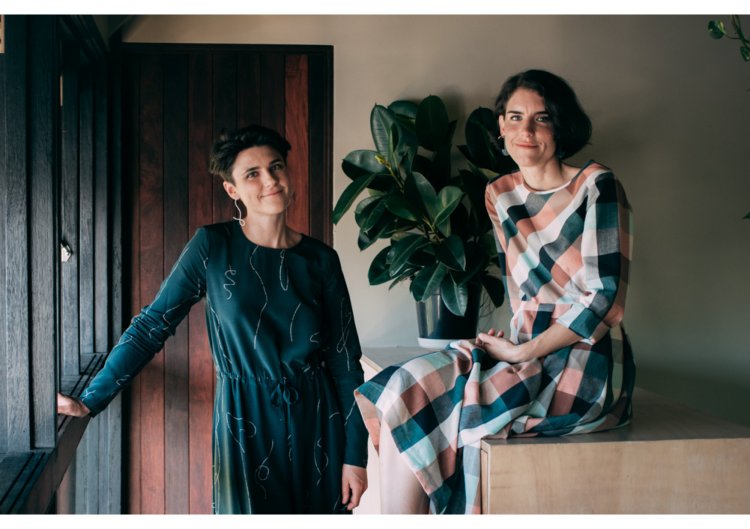Motto Behind the Brand
Karina returned to Australia after working in local food production in Brooklyn, New York, because of her passion for Australian resources. The sisters become intensely conscious of the waste in the industrial industry as a result of her training in fashion design. Sam had spent several years with the Indigenous creative agency Gilimbaa and had established a number of community-based initiatives in Brisbane. They poured the effort into learning the green economy and closed-loop system models, inspired by the creative and mutual benefit business practices they witnessed which were popping up everywhere. Their admiration for Australian wool led them to the country's oldest weaving plant. She was ready to turn her purpose-driven business lessons into her own community project. They weave recycled wool blankets with a variety of suppliers in Australia and Europe that are reusable at the end of their life cycle. The award-winning blankets are produced from manufacturing offcuts, deadstock yarn, and post-consumer textile waste, such as old woollen sweaters.
Sustainability
With the clear-cut idea of being ecologically friendly, they save all of their manufacturing scraps for future use. They created blankets out of these offcuts and included a control loop that remanufactures the blankets at the end of their useful life. After a few years of working with Australia's oldest wool mill, they ran completely out of trash which is a fantastic job! However, they needed to remove even more textile waste from landfills, so they turned abroad. They took their first step into internationalising the distribution network when they discovered a mill in Lithuania that collected its own factory floor trash and reprocessed the waste of many other mills. The recycled wool blankets are now made at mills in Australia, Lithuania, and Italy. This allows them to operate as close to home as possible while yet benefiting from the economies of scale that manufacturers in Europe provide. Sam works out of Seljak Brand's Brisbane showroom and studio, while Karina is based on the Sunshine Coast. They're two sisters who dream of a world free of the trash. They're exploring different methods to create and use amazing stuff that is designed to be a closed circuit.
Natural Materials
Wool is a natural fiber that is extremely difficult to duplicate: it's a renewable resource, it's odour and stain-resistant, antimicrobial, light, permeable, and insulating. They give $5 for each blanket sold to the Asylum Seeker Resource Centre (ASRC), an organisation that helps asylum seekers and new migrants in Australia feel welcomed, protected, and encouraged. They'll retrieve your blanket for free using a carbon-neutral delivery service once it's had a long and fulfilling life. If the blanket is still useable, they'll donate it to the ASRC's Material Aid program; if it's torn and no longer useful, they'll recycle it with one of our mill associates or with Apparel. It will be shredded and spun into fresh yarn, which will be used to create future blankets.
1.The mill using deadstock yarn is in Geelong, Australia.
The Rough collection is produced in a factory in Geelong that specialises in upholstery manufacturing. They were ecstatic to discover that they had expanded into blanket weaving. They also have a stash of deadstock yarn that they've been saving in the hopes of utilising before it becomes dusty and moth-eaten.
2. The first recycled wool mill partner came from Tasmania, Australia.
The vertical integration, 150-year-old mill in Tasmania spins and weaves exquisite blankets from Australian merino, alpaca, mohair, and cotton. The repurposed wool blankets are made from the by-product.
3. Italy- recycling of post-consumer textiles.
Seljak Brand employs yarn that is created from post-consumer textile waste, such as old woolen sweaters. At mills in a textiles district near Florence, Italy, the "trash" is recycled into fresh yarn. Woollen clothing is classified into like-colored groups, as well as by specific material and fiber grade. Colour specialists painstakingly match the colors of each yarn lot so that they may supply "stock colors" regardless of the clothes being recycled. The formula will change significantly each time, but the ultimate product will be the same. They're then torn and frayed before being spun into a new yarn with a little polyamide added for durability.
4. Lithuania is home to a mill with jacquard looms.
Our Lithuanian mill is over a century old, and its Italian weaving gear creates high-quality upcycled fabrics with complex patterns. The mill gathers offcuts from 16 mill floors around Europe and merges them together during treatment in Lithuania. They weave abstract designs into the blankets due to the specialist Jacquard machines! Their loop strategy allows everyone to remove garbage from landfills while still producing elegant and functional blankets.
Seljak Brand also engages in technology development, as well as educating and advocating for the circular economy and environmental issues.
Address- 13a Gladstone Rd, Highgate Hill, QLD 4101.
Mr. Biller's team wishes Seljak Brand all the best!!








